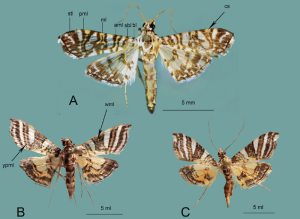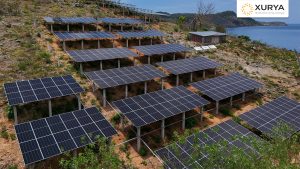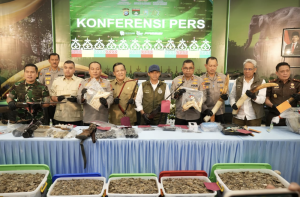Jakarta—Civil society groups are voicing strong warnings about the ecological and social impacts of nickelisation. On Friday, 23 May, at the launch of a report titled “Sulawesi Pollution Barn: Nickel Downstreaming and the Collapse of Socio-Ecological Order,” the “Sulawesi Without Pollution” Coalition released an investigative report that said that the expansion of the nickel industry in Sulawesi had created a “pollution barn” instead of progress.
The coalition coordinator, Muhammad Al Amin, asserted that nickel downstreaming supported by coal-fired power plants has driven systemic environmental damage, displaced indigenous peoples, and triggered a public health crisis. “We are not witnessing progress, but massive and systemic ecological destruction,” said Amin.
A delegation of affected communities and civil organisations sent representatives to Jakarta on 21 May 2025, to meet officials at the Ministry of Energy and Mineral Resources (ESDM) and the Ministry of Industry. They brought a list of demands that included a halt to the construction of captive power plants in nickel areas, a revision of Presidential Regulation No 112/2022 that exempts the use of coal by strategic industrial sectors, a review of the status of National Strategic Projects (PSN) for nickel projects proven to be environmentally damaging, protection of community-managed areas and customary forests, mining law enforcement reform and public involvement in decision-making processes.
“The Ministry of Energy and Mineral Resources and the Ministry of Industry do not have a clear roadmap to stop the industry’s dependence on coal. Almost all nickel smelters in Sulawesi rely on PLTU, which contributes greatly to air and water pollution,” Amin said.
Environmental impacts from Morowali to Konawe
The report describes field findings from various locations affected by the nickel industry in Morowali, Central Sulawesi, where residents around PT Indonesia Huabao Industrial Park (IHIP) reported decreased air quality, marine pollution, land evictions, and criminalisation of environmental activists.
“Since the power plant and smelter began operating, cases of respiratory illness have increased. Even children are starting to be affected,” said Amin.
In Konawe, Southeast Sulawesi, people live with fly ash and bottom ash, which pollute water sources. Coal dust also increases household workloads, especially for mothers.
The coalition emphasises that President Prabowo Subianto, as the new leader, must take a firm stance. They urged that all coal-fired power plant projects for industry be stopped and funding from foreign companies, especially Chinese corporations, be immediately re-evaluated.
“President Prabowo must immediately stop the construction of captive power plants, review the PSN status of high-risk nickel projects, and protect customary forests and the living space of local communities,” said Amin.
The coalition also urges an increase in social and environmental protection standards and the creation of an independent accountability mechanism for the mining and energy industry. This report is a strong alarm for the government and stakeholders. Suppose the energy transition only favours the interests of industry and investors without involving the community and protecting the environment. In that case, social and ecological destruction is only a matter of time.
“The energy transition cannot be built on the suffering of communities and the destruction of ecosystems,” Amin concluded. (Hartatik)
Banner photo: shutterstock















